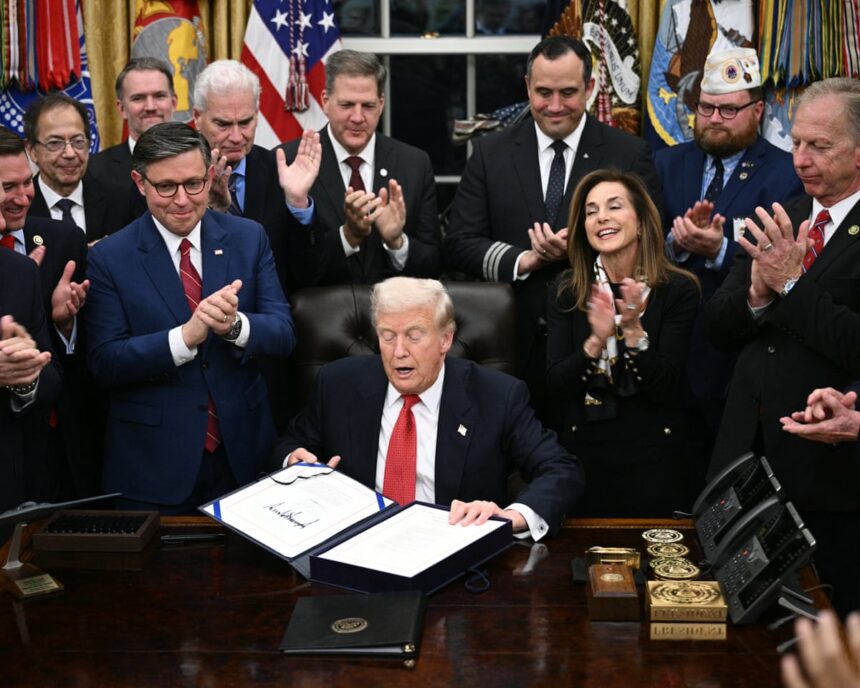United States President Donald Trump signed a stopgap funding bill into law late Wednesday, officially ending the longest U.S government shutdown in history after a 43-day political impasse.
Trump signed the bill after the measure, which will fund government operations through the end of January, was passed by the House of Representatives earlier Wednesday night in a 222-209 vote.
The measure immediately restores full operational funding to federal agencies through January 30, 2026, and signals the return to work for hundreds of thousands of furloughed federal employees.
The shutdown, which began on October 1, 2025, due to an appropriations disagreement centered on healthcare and budget priorities, had eclipsed the previous record of 34 days set in 2018-2019.
Speaking at the Oval Office in White House after the longest U.S government shutdown ended, Trump said: “The Democrats tried to extort our country. Republicans never wanted a shutdown.
“People were hurt so badly,” Trump added, noting the more than 1 million federal workers furloughed, and the effect on government services for Americans. “We can never let this happen again.”
He also reiterated his call for the Senate to end a filibuster rule that effectively requires 60 votes to pass legislation, including short-term funding resolutions.
However, Trump did not take questions from the press after the signing, despite several of them trying to ask about the release by House Democrats earlier in the day of documents from the estate of his former friend, Jeffrey Epstein, the notorious sex offender.
Earlier, before Trump signed the bill to end the longest U.S government shutdown, Speaker of the House of Representatives, Mike Johnson, R-La., before Wednesday’s vote, in comments backing the bill on the chamber’s floor, said, “My friends, let’s get this done.”
Just two Republicans in the House voted against the bill: Thomas Massie of Kentucky and Florida’s Greg Steube.
All but six Democrats voted against the bill: Adam Gray of California; Jared Golden of Maine; Tom Suozzi of New York; Marie Gluesenkamp Perez of Washington; Don Davis of North Carolina; and Henry Cuellar of Texas.
Recall also that the U.S Senate had passed the funding bill on Monday night, a day after the Republican majority won support for it from seven Democrats and one independent senator to barely reach the 60-vote minimum.
Under the deal, Senate Republicans agreed to allow Democrats a vote in December on a bill of their choice to extend those boosted subsidies, which are due to expire at the end of that month.
Without those tax credits, millions of Americans will see sharp increases in the cost of their Obamacare insurance plans.
In addition to short-term funding, the deal will also reverse all shutdown-related layoffs of federal government employees and ensure that all federal workers will be paid their normal salaries that they would have received if the government had not shut down.
Pan-Atlantic Kompass reports also that following the signing of the funding bill the U.S Office of Management and Budget told federal employees to return to their jobs on Thursday.
The development comes as the U.S. Department of Transportation froze the level of flight cuts it imposed in light of shortages of air traffic controllers during the shutdown.
As of Tuesday, 6% of scheduled flights were cancelled at U.S. airports, and that level was set to rise to 10% by Friday.





